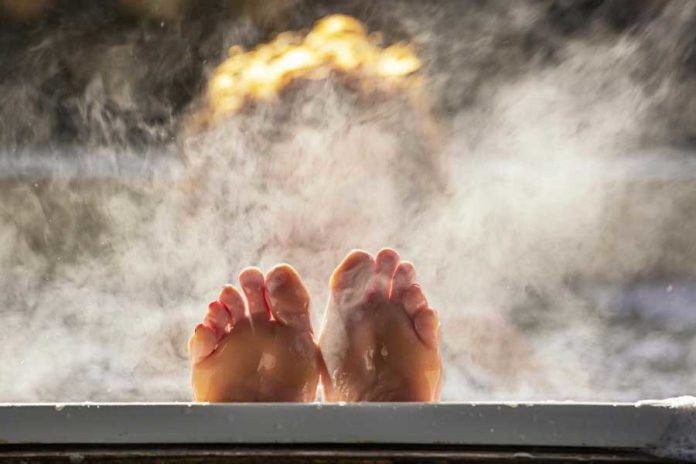If you are unable to exercise, a hot bath treatment may help improve inflammation and blood sugar (glucose) levels, suggests a new study.
Scientists particularly studied markers of inflammation and blood sugar and insulin levels in a group of sedentary, overweight men.
Physical stress such as exercise can increase the level of an inflammatory chemical (IL-6), which activates the release of anti-inflammatory substances to combat unhealthily high levels of inflammation, known as chronic low-grade inflammation.
During the study, scientists asked volunteers to undergo in both hot-water immersion and ambient room temperature (control) trials separated by at least three days.
Scientists took a resting blood test after the members had rested in a 27-degree C room for 15 minutes. After the rest time frame, the members either stayed seated in the room or entered a boiling water shower for 60 minutes.
In the hot water preliminary, the volunteers sat inundated up to their neck in 39-degree C water. The exploration group estimated the men’s heart rate, blood pressure and body temperature at regular intervals all through both the control and immersion conditions. Blood tests were taken again promptly after and two hours after every session.
Single hot-water immersion session causes the elevation of plasma Il-6 concentration and increased nitric oxide production, but did not change the expression of heat shock protein 72 – another protein suggested to be important for health.
It also leads to the reduction of fasting blood sugar and insulin levels as well as improved low-grade inflammation at rest. The outcomes offered the positive results of decreased inflammation and improved insulin sensitivity.
The study suggests that the hot-water immersion may improve aspects of the inflammatory profile and enhance glucose metabolism in sedentary, overweight males and might have implications for improving metabolic health in populations unable to meet the current physical activity recommendations.
Sven Hoekstra said, “As the research on passive heating to improve cardiometabolic health is still in its infancy, this study provides strong rationale to continue the work on a treatment that may provide an alternative for people restricted from engaging in physical activity.”
“In the future, we hope to extend this research to populations that may most benefit from passive heating interventions, such as the elderly or people with disabilities that restrict them from engaging in exercise.”
The study is published ahead of print in the Journal of Applied Physiology.
